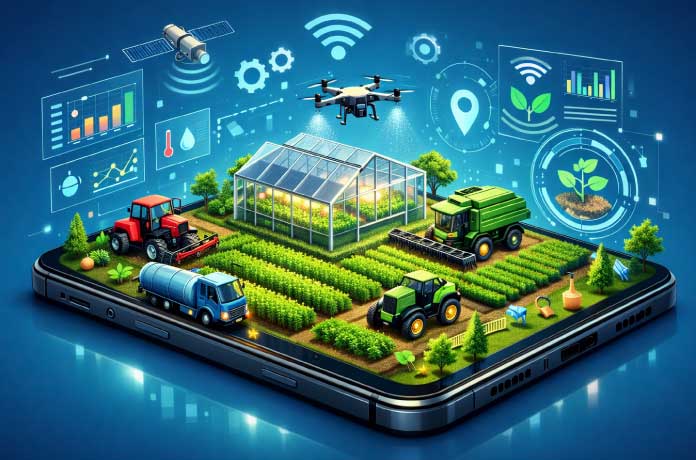Blockchain agriculture allows for the traceability of information in the food supply chain, which enhances food safety. The ability of blockchain to store and manage data creates traceability, which is utilized to simplify the creation and deployment of technologies for intelligent farming and index-based agriculture insurance. In the world of contemporary agriculture, it’s a significant advancement. Yet, how does it operate, and how does it enhance food safety?
How Does Blockchain Technology Work?
With the rise in popularity of Bitcoin and other cryptocurrencies, one has probably heard a lot about blockchain technology. Still, it may be surprising to learn that it also has applications in agriculture. An innovative technique to power these databases is via blockchain technology. They grant rights to every member of the network as opposed to just one server and administrator. When many parties can view and verify new database entries, there is more security and less chance of corruption. Also, it is more secure than conventional technologies since everyone involved must agree to add security restrictions on top of encryption. Every system becomes very tough to manipulate.
What are the Applications of Blockchain Technology?
Blockchain technology tracks information on a plant’s life, such as the quality of the seed, how a crop grows, and even the path a plant takes after leaving the farm. This information can enhance supply chain transparency and lessen unethical and illegal production issues. Also, they identify the source of contamination or other problems during a recall. With these technologies, food security and sustainability come first. Customers make wise decisions regarding their purchases with this level of transparency. They frequently use this data to reward farmers and other producers that follow ethical standards.
Blockchain Technology: Concerns
Blockchain technology has raised fears that they could be manipulated or misused, endangering food security. For instance, privately held blockchains are less secure and more prone to manipulation. These blockchains depend on restrictions imposed by private entities, and therefore, it is simple to understand how the wrong people could take advantage of them. Small-scale farmers who lack the size, technological prowess, and scale necessary to utilize blockchain technologies risk being left behind.
How to Manage Blockchain Technology?
Before implementing blockchain technology effectively in the agriculture sector, several issues need to be resolved. Firstly, decentralized blockchain implementation is required to accommodate small farmers and rural people. If not, there will still be a problem with food security. Consumers can make wise decisions if an implementation must enable equitable and sustainable food systems. Those lacking the digital literacy to use blockchain technology must receive an education. Decentralizing the system includes this. Who can participate may be restricted by outdated infrastructure and low levels of internet knowledge among the poor. Thus, to tackle the food insecurity issues among a diverse population, it is crucial to integrate blockchain technology into broader food security strategies compatible with social and environmental values. The most imperative factor is that these breakthroughs are applied equitably, allowing all stakeholders to profit from their value.




